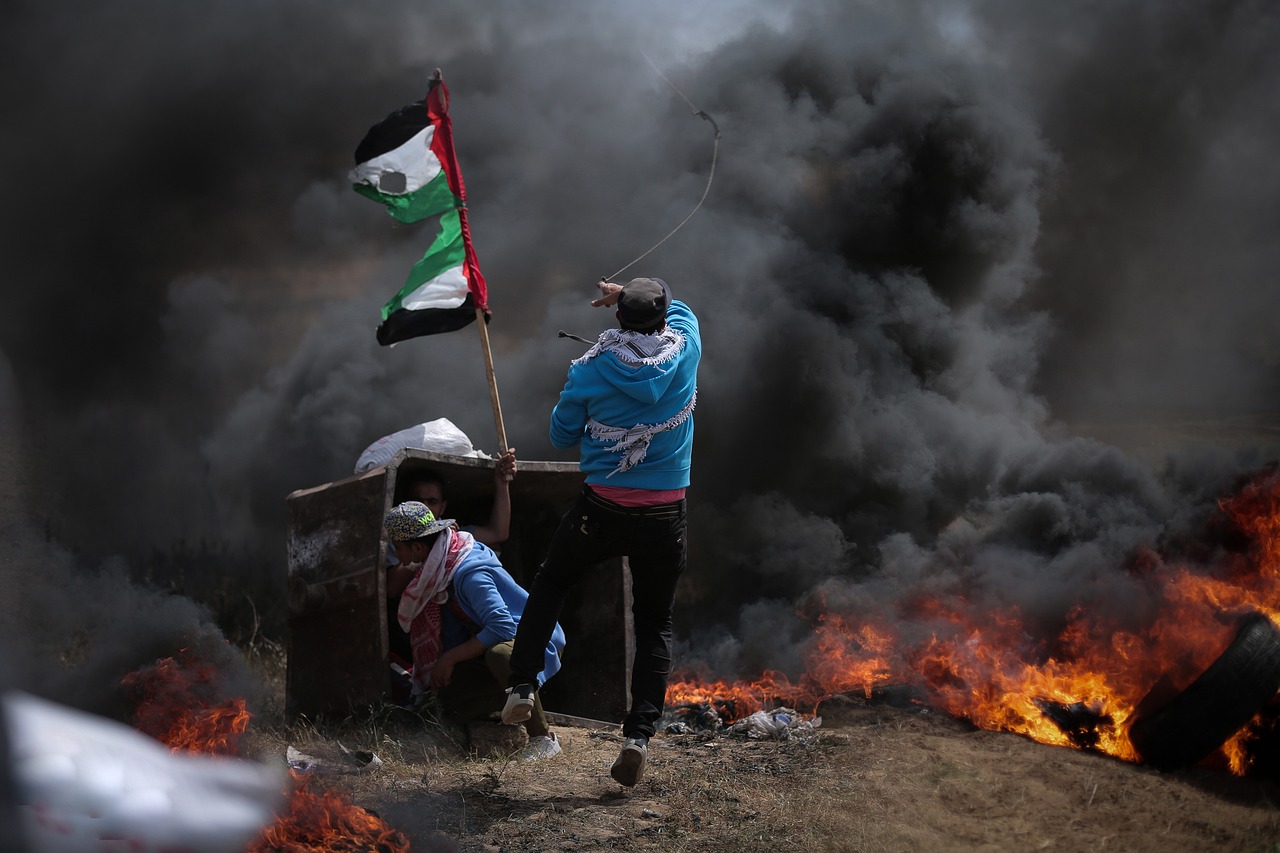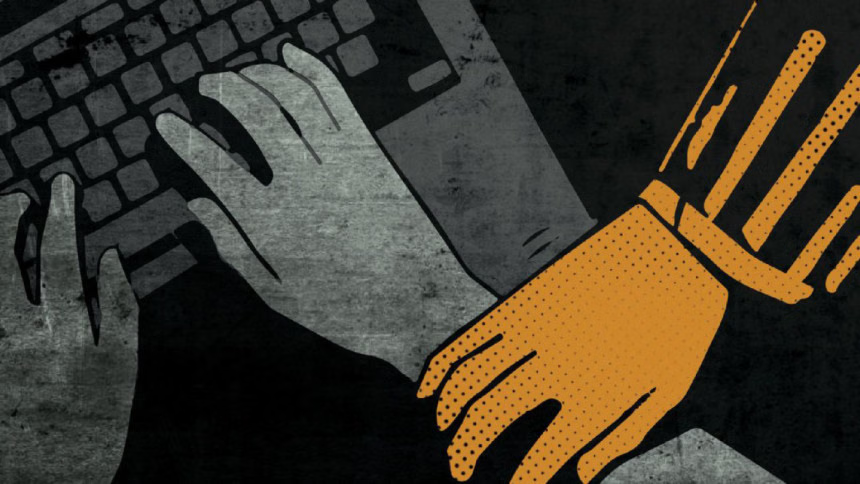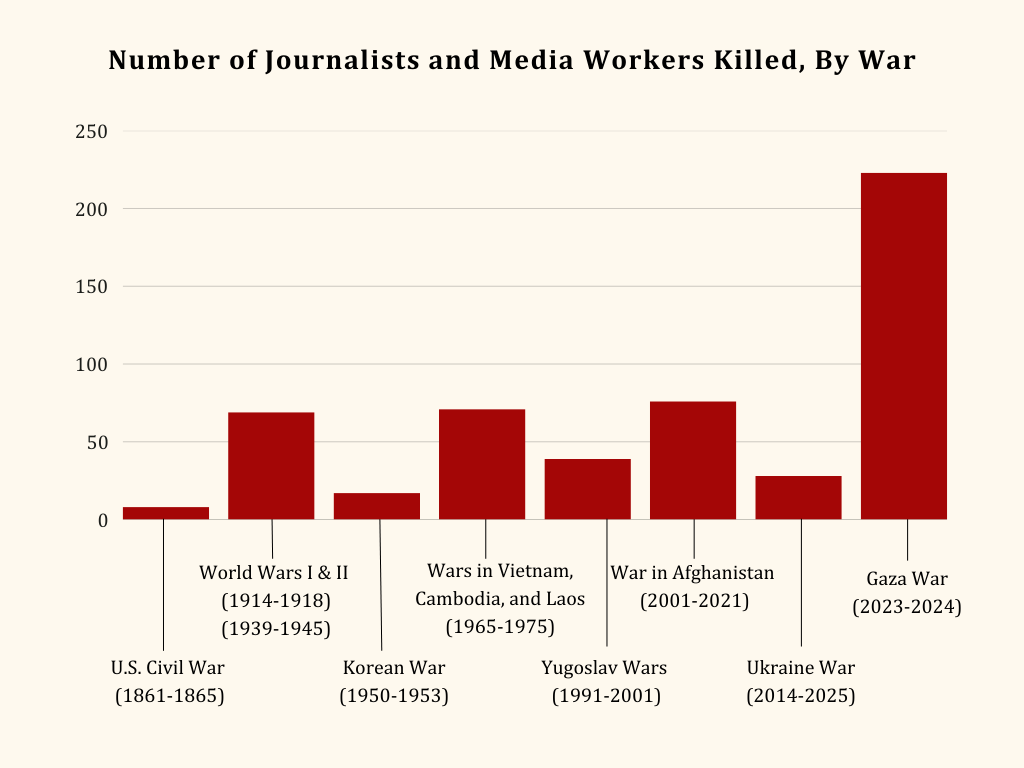
Ethical Risks in Embedding with Military Forces Amid Allegations of Genocide
August 27, 2025
Violence Against Journalists in Bangladesh Doubled in August
September 3, 2025The Costs of War Project at Brown University reveals alarming risks faced by journalists in conflict zones, portraying these areas—especially Syria and Gaza—as “news graveyards.” Since the early 2000s, a range of actors—from state regimes like Syria’s Assad and the U.S., to terrorist groups and Israel—have systematically suppressed conflict reporting through violence, arrests, and repressive policies, fueling a troubling culture of impunity. The war in Gaza, particularly since October 7, 2023, stands out as the deadliest in modern history for reporters: more journalists have died there than in the U.S. Civil War, both World Wars, the Korean War, Vietnam (including Cambodia and Laos), the Yugoslav wars, and the post‑9/11 war in Afghanistan combined.
The situation is deteriorating globally. In 2023, journalists or media workers were killed on average every four days—by 2024, this escalated to one every three days. Significantly, most victims are local journalists working under constrained conditions, often underpaid, under-resourced, and lacking protection.
Concurrently, the decline of foreign correspondents—resulting from long-term reductions in international news coverage and newsroom closures—has created a dangerous vacuum. Fewer experienced international reporters mean local journalists face disproportionate hazards alone, while the rest of the world loses critical insight into conflicts.
This weakening of journalism has profound implications. Without reliable coverage, the global information ecosystem deteriorates, depriving local communities and international audiences alike of accurate conflict reporting. Such erosion of media safeguards not only jeopardizes public knowledge but also threatens accountability and informed response to humanitarian crises.
In essence, the “News Graveyards” report warns that escalating attacks on journalists and the diminishing presence of foreign news outlets are jointly crippling our ability to comprehend and respond to global conflict—a crisis with dire consequences both for media freedom and global awareness.
Reference –

